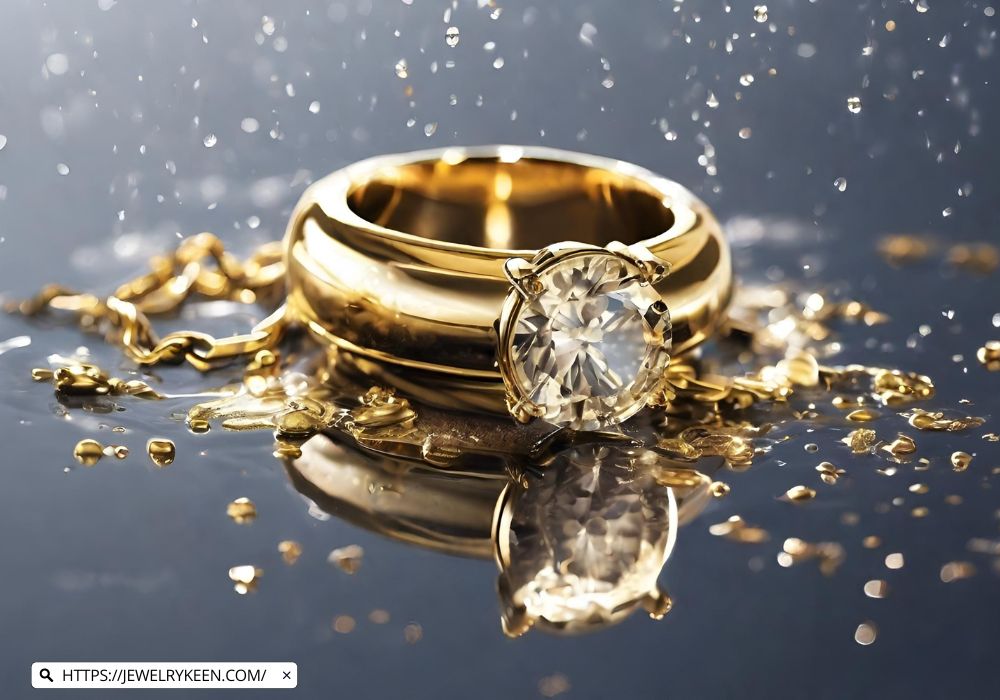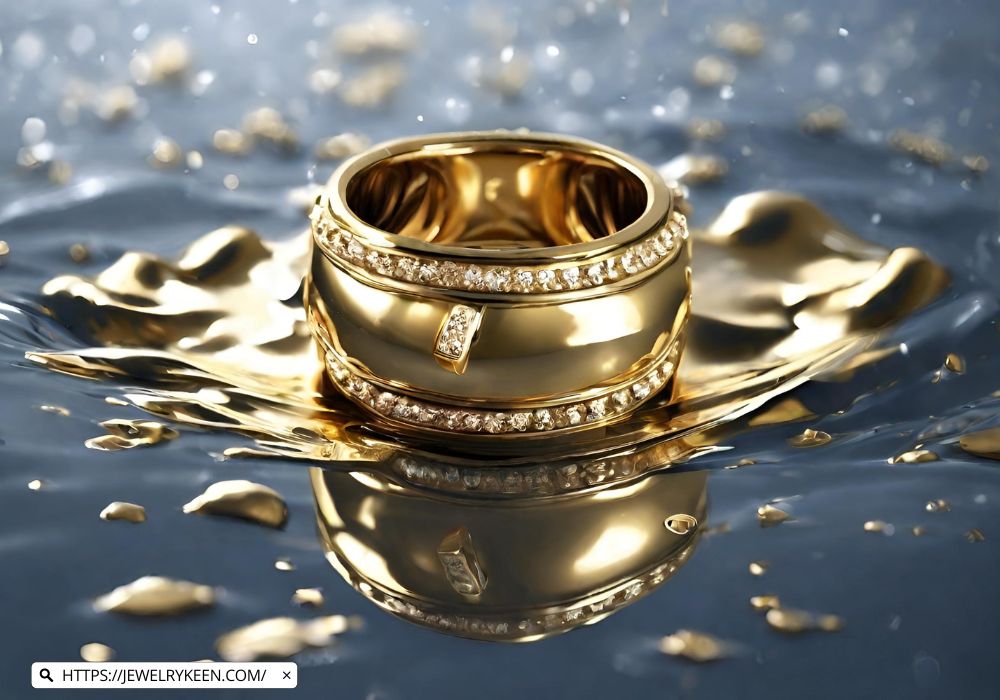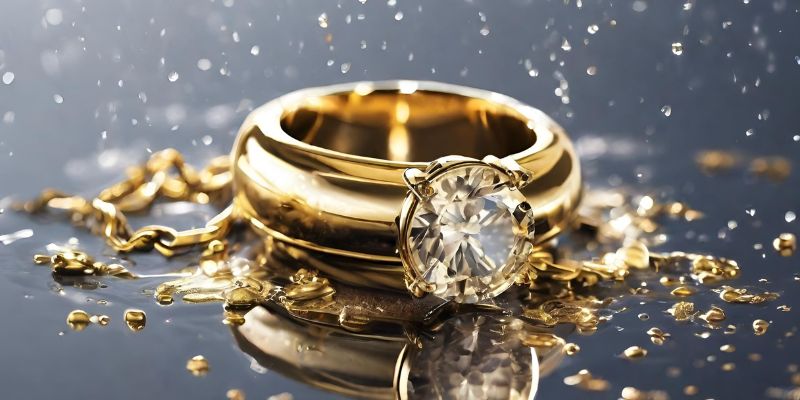The allure of sparkling gold has captivated for centuries, but when it comes to water, confusion reigns. Does “waterproof” truly apply to your favorite necklace or ring? Can you dive into the pool or frolic on the beach without risk? Fear not, treasure hunter! This guide delves into the fascinating world of gold and water, separating myth from reality to help you make informed choices.
Gold’s Inner Strength: A Chemical Dive
At its core, gold (Au) is a chemical champion known for its remarkable inertness. Unlike many metals, it readily resists corrosion and oxidation, even in the presence of air and moisture.

This inherent quality explains why ancient gold treasures, buried for eons, retain their shine. So, from a purely chemical standpoint, pure, solid gold (24K) can indeed get wet without immediate harm.
The Complex Tale of Karats and Alloys
But wait, there’s more to the story! Most commercially available gold jewelry isn’t pure 24K. To enhance its strength and workability, it’s often alloyed with other metals like copper, silver, or nickel.
The proportion of pure gold determines the karatage: 18K gold is 75% gold, 14K is 58.3%, and so on.
Here’s where things get intriguing. While pure gold remains unscathed, the alloyed metals in lower karat gold can react with water, chlorine, or harsh chemicals.
- Chlorine: Found in pools, it can react with copper or silver in the alloy, causing discoloration or a chalky residue.
- Saltwater: Similar to pools, chlorine isn’t the only concern. Saltwater’s minerals can interact with certain alloys, leaving a dull film.
- Hot springs: High temperatures and mineral content can accelerate any potential reactions.
Navigating the Aquatic Realm: What’s Safe and What’s Not?
Now, let’s dive into different water scenarios based on karatage:
Freshwater showers or baths: Generally safe for all karatages. However, some people with sensitive skin might experience reactions from the alloyed metals, even in freshwater.
Swimming pools: Proceed with caution! While pure gold and high-karat gold (18K+) usually fare well, lower karat gold is susceptible to chlorine damage. Consider removing it before swimming.

Saltwater: Similar to pools, chlorine isn’t the only concern. High-karat gold is a safer option, but thorough rinsing and drying afterward is crucial.
Hot springs: It’s generally advisable to remove gold jewelry before soaking due to the high temperatures and mineral content.
Beyond Water: Other Threats to Consider
Remember, water isn’t the only enemy:
- Harsh chemicals: Household cleaners, bleach, and even beauty products can damage gold, regardless of karatage. Remove your jewelry before using such products.
- Physical damage: While strong, solid gold is inherently soft. Swimming or vigorous activities can lead to scratches or bending, especially with intricate designs.
Caring for Your Aquatic Adventures
To keep your gold clean and sparkling:
- Rinse and dry: After water exposure, especially saltwater or chlorine, rinse your gold jewelry thoroughly with clean water and dry it with a soft cloth.
- Regular cleaning: Use a gentle jewelry cleaner or mild soapy water followed by a soft cloth polish to maintain its shine.
- Store carefully: When not worn, store your gold jewelry in a dry, fabric-lined box to prevent scratches and tarnish.
The Final Verdict
Solid gold jewelry boasts remarkable resilience, but understanding its limitations is key to preserving its beauty. By considering karatage, the presence of chlorine or harsh chemicals, and potential physical damage, you can make informed decisions about taking your precious pieces on aquatic adventures. Remember, proper care and awareness ensure your gold continues to shine brightly, just like the timeless allure it represents.
